Forced displacement and prolonged stress caused by the war put significant pressure on youth, especially students belonging to the most vulnerable categories –internally displaced persons (IDPs), children of combat participants, and orphans. This double traumatisation often leads to a loss of life perspective, chronic anxiety, and the destruction of the sense of safety. In response to this critical need to strengthen psychological resilience, a specialised art therapy session titled “My Golden Fish” took place on October 27, 2025, at Poltava Polytechnic, as part of the psychological support program. The event, which lasted about two hours, became a space for deep self-reflection and the search for internal resources. The goal of this art therapy session was to help students recognise their own needs and dreams, build confidence in their own strength, and create a safe space for emotional relaxation and self-expression.
The session was conducted by highly qualified specialists from the Department of Psychology and Pedagogy: Lesia Klevaka, Candidate of Pedagogical Sciences, Acting Head of the Department of Psychology and Pedagogy; Maryna Teslenko, Candidate of Pedagogical Sciences, Associate Professor of the Department of Psychology and Pedagogy; and Viktoriia Shevchuk, Candidate of Psychological Sciences, Associate Professor of the Department of Psychology and Pedagogy. The methodological basis was an integrative approach that combined elements of art therapy, ecopsychology, and work with Metaphorical Associative Cards (MAC). The use of MACs allows participants to bypass intellectual barriers and connect with subconscious desires and needs through images. Simultaneously, the inclusion of ecopsychology aims to activate a powerful resource – the connection with nature – which is fundamental for psychological grounding and the restoration of inner harmony.
The work began with a crucial stage: establishing trust – a welcoming circle – in which a friendly atmosphere of interaction was created through a playful projective exercise. Next, the participants immersed themselves in the “My Sea of Resources” process. This ecological exercise, combined with elements of visualisation set to the sounds of the sea, aimed to stabilise and ground the psyche. During times of chronic danger, the sense of stability is often destroyed; visualising and drawing the “sea” as a symbol of boundless resource and calm allowed the psyche to create an internal container of safety. Students were able to graphically express everything that gives them a sense of strength, harmony, and support in real life, transforming abstract concepts into visual images.
The session culminated in the creative part, “My Golden Fish”. The use of the Golden Fish archetype – a symbol of miracles and the fulfilment of dreams – became a powerful projective tool for working with seemingly unattainable desires. The facilitators intentionally limited the scope of wishes beyond the material sphere, focusing the work on internal, psychological needs (calm, faith, confidence). This mechanism encouraged the youth to engage in deep self-reflection, helping them realise that true happiness and balance require internal transformation, not just external changes. The subsequent discussion, “My Desires – My Resources”, was a key moment in developing self-efficacy – participants identified their own internal qualities necessary for realising these non-material desires. This shifts the focus from being a victim of circumstances to being an active creator of one’s own life.
To conclude the session, an essential integrative practice took place – the ecological exercise “Message to Nature”. Each participant, passing a symbolic seashell, expressed a brief wish, a gesture of gratitude, or a promise to the world around them. From a psychological perspective, this exercise contributes not only to the formation of ecological consciousness but also to the restoration of a deep sense of belonging. Recognising oneself as part of a larger, life-giving system (nature) is a powerful antidote against the feeling of isolation that often accompanies forced displacement. It also reinforces the idea that caring for the external environment is a form of caring for one’s own inner self.
The concluding reflection attested to the students’ emotional relief and increased internal motivation. “Our golden fish lives inside us. It is our faith, our energy, our actions. Sometimes, to feel support, you don’t need to wait for a magic fish. It is enough to see that all our resources are already within ourselves”, – the trainers emphasised, cementing the main therapeutic conclusion: true strength lies in internal resilience. Thanks to creativity and mutual support, the youth found their “sea of resources” – the ability to dream, act, and restore harmony with themselves and the world. Such integrative art therapy sessions are vitally necessary for developing emotional resilience and forming a culture of self-care during difficult times.
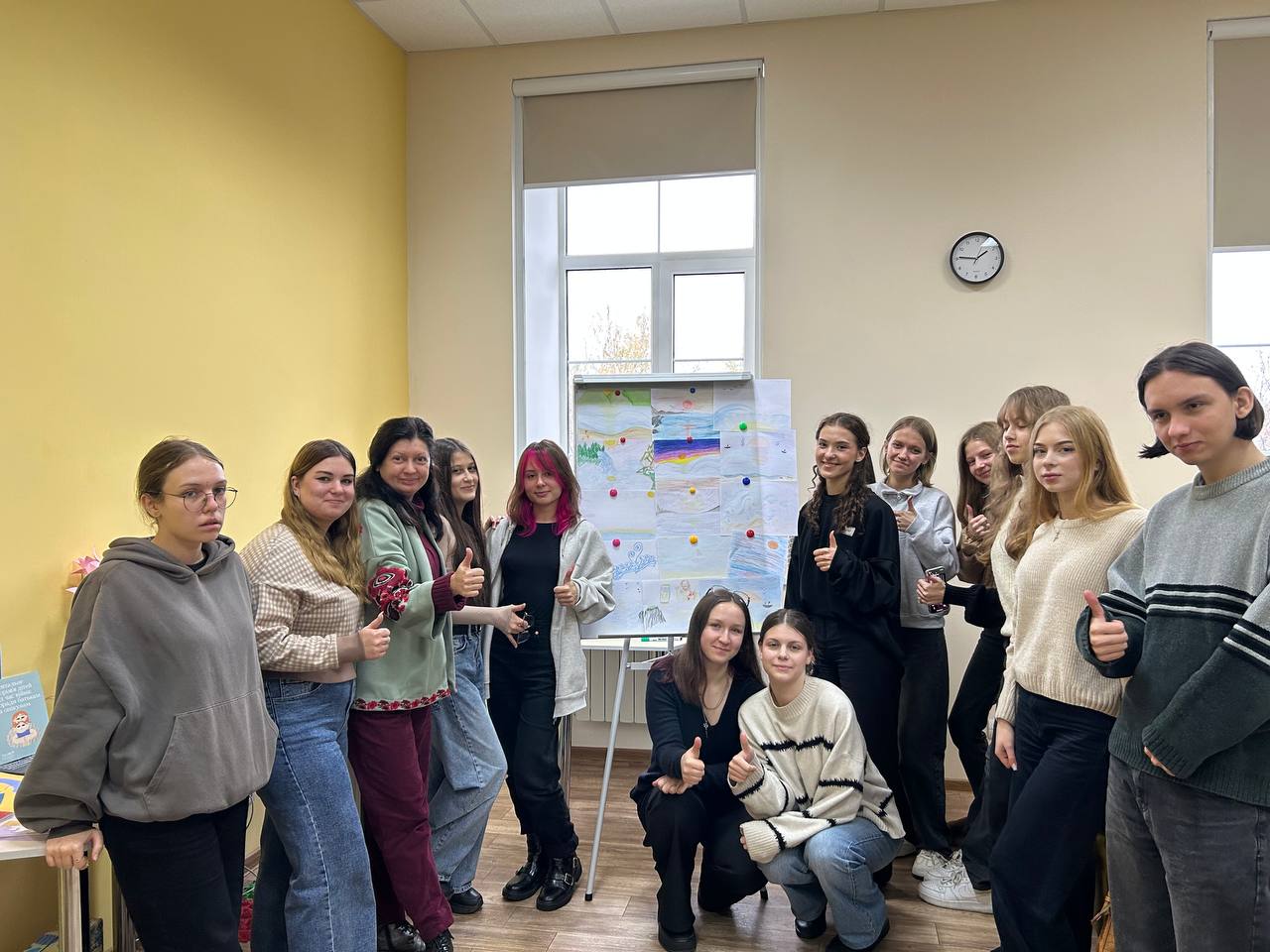
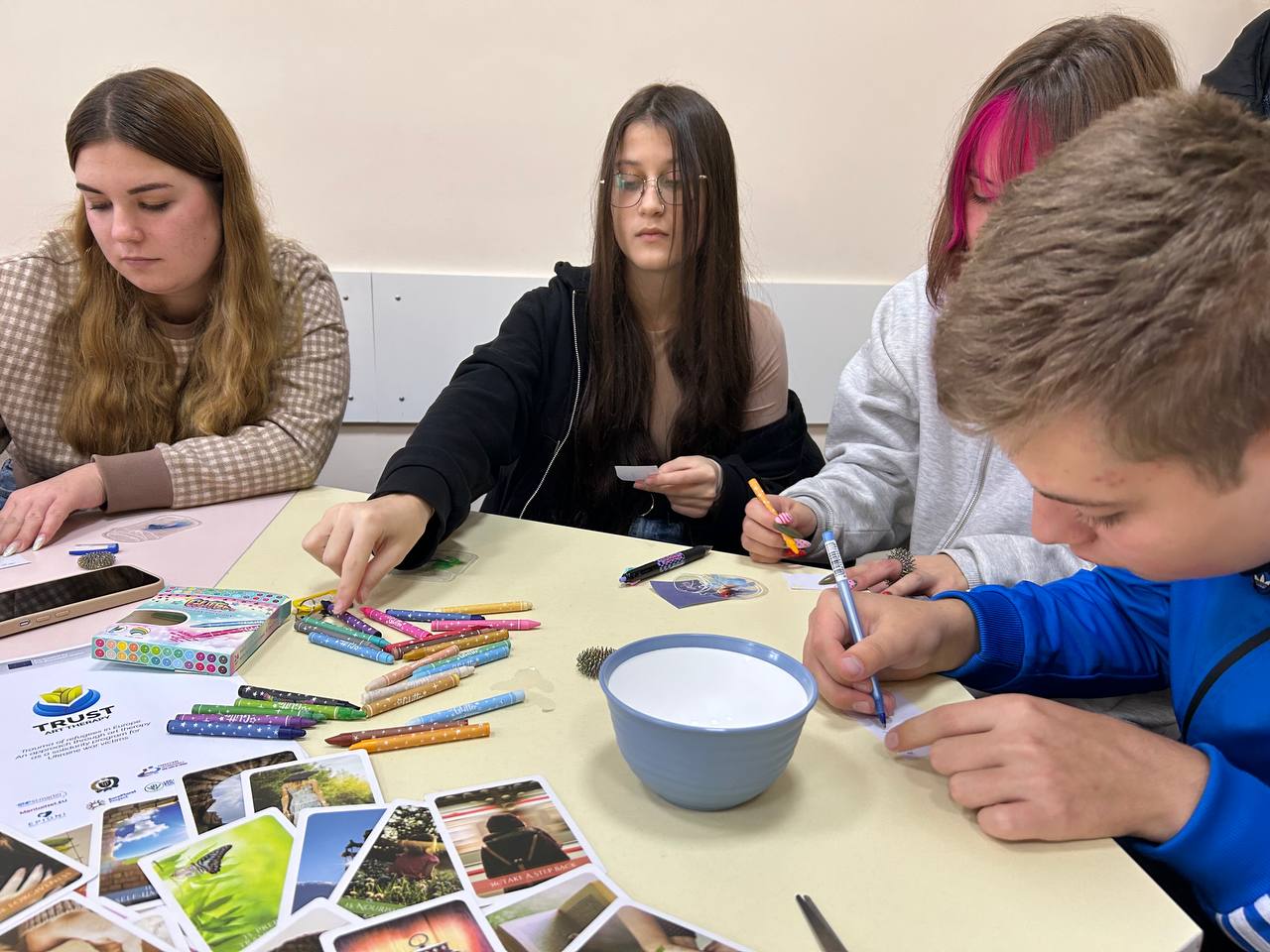
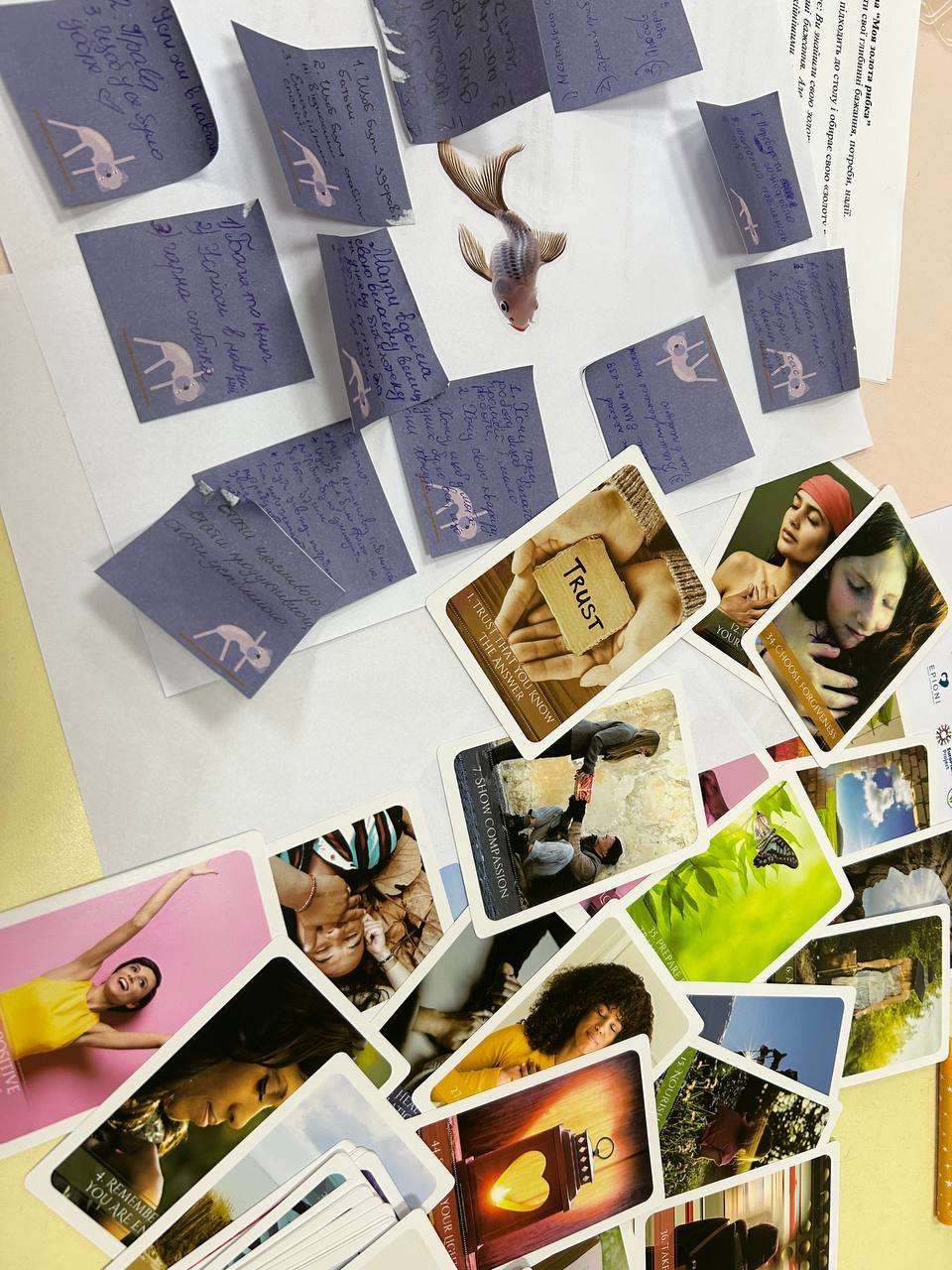
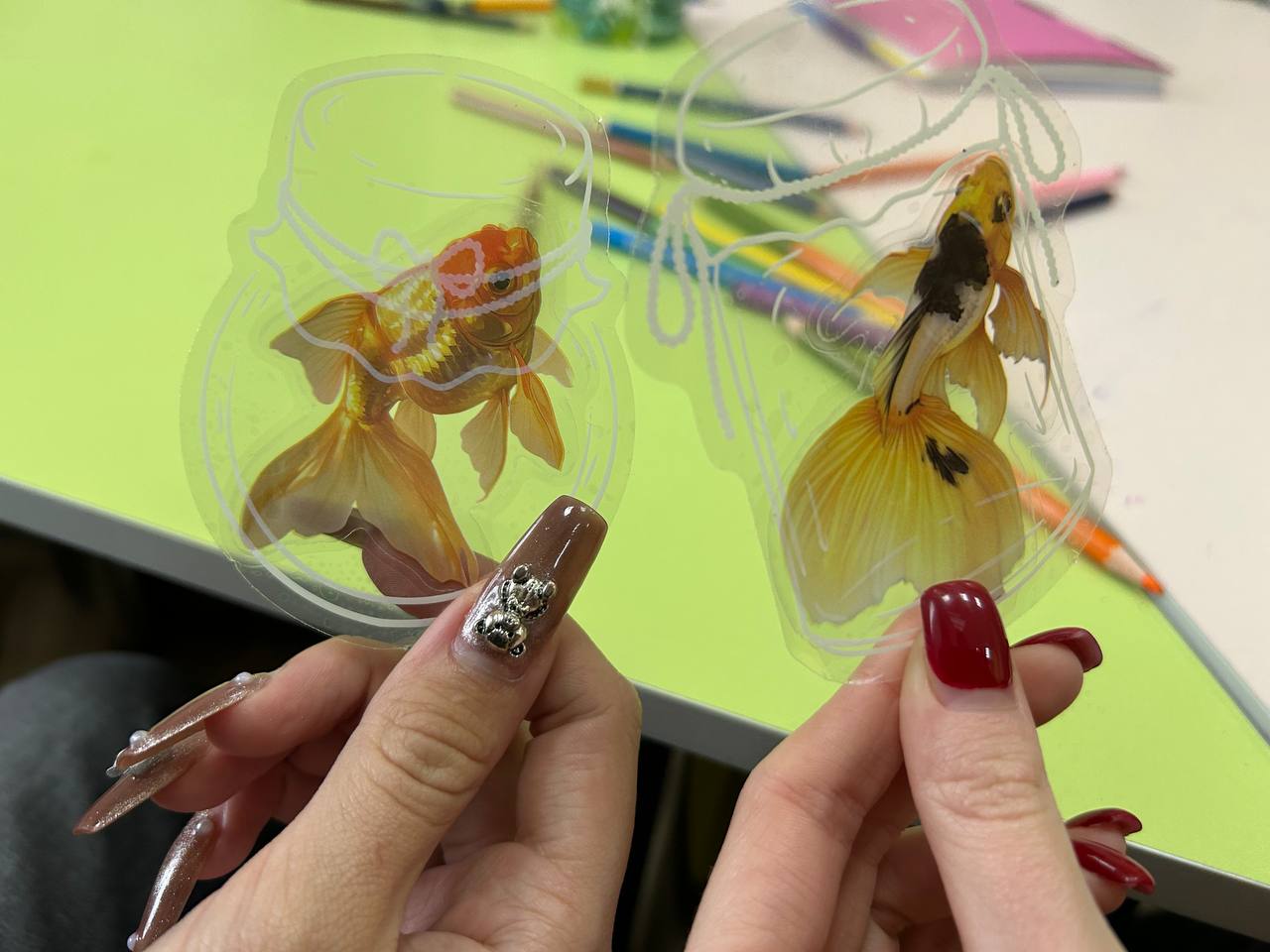
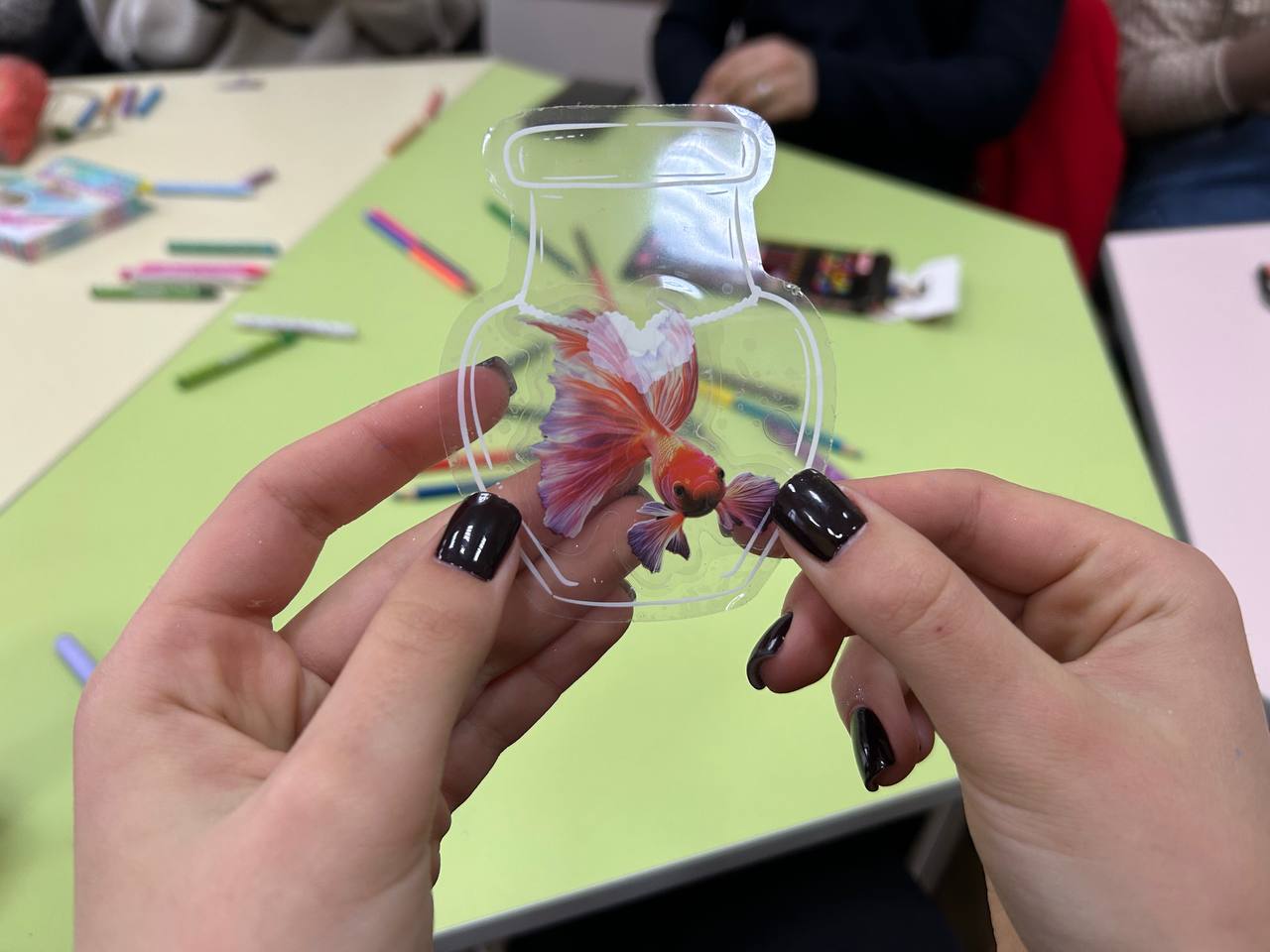
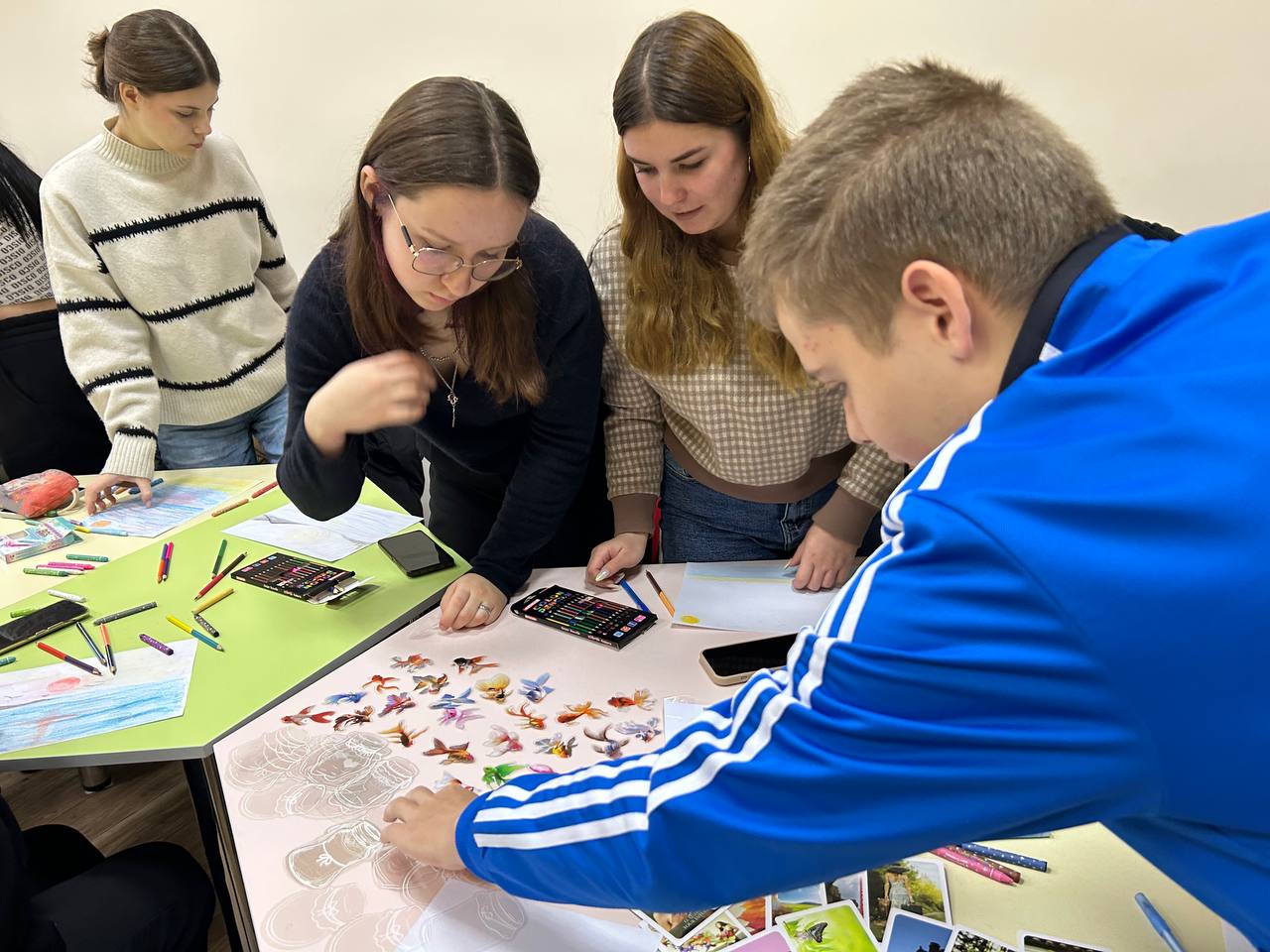
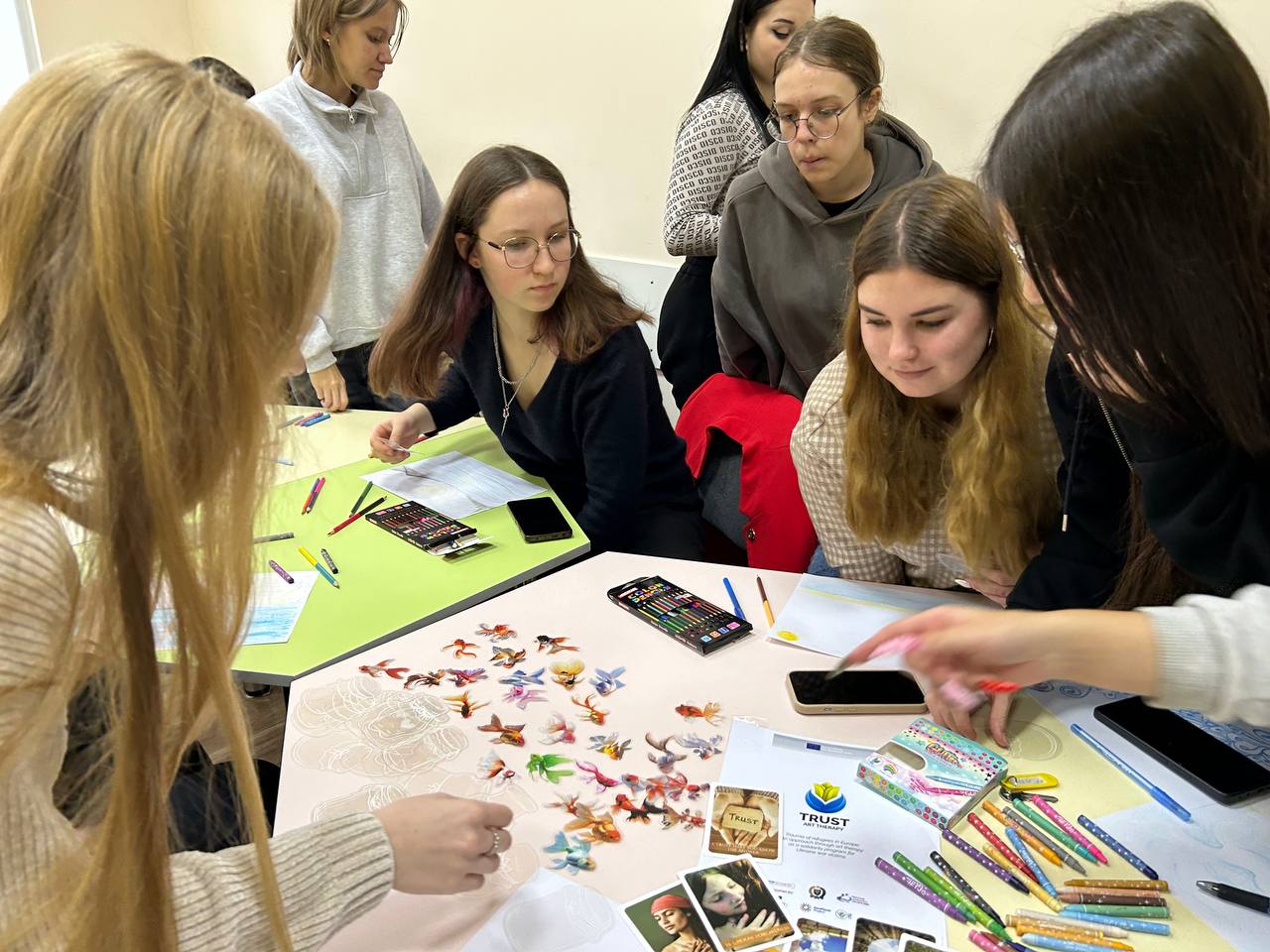
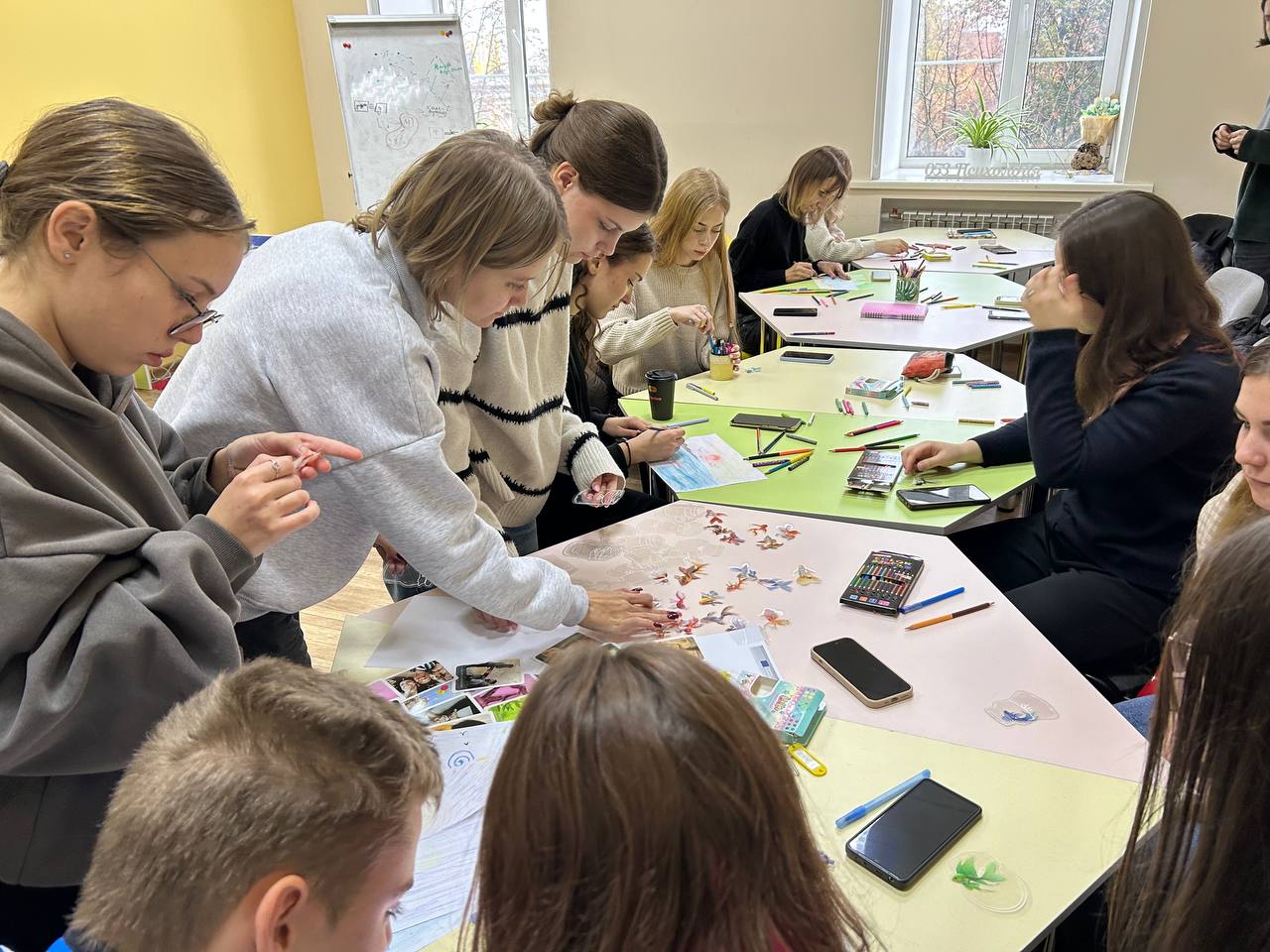
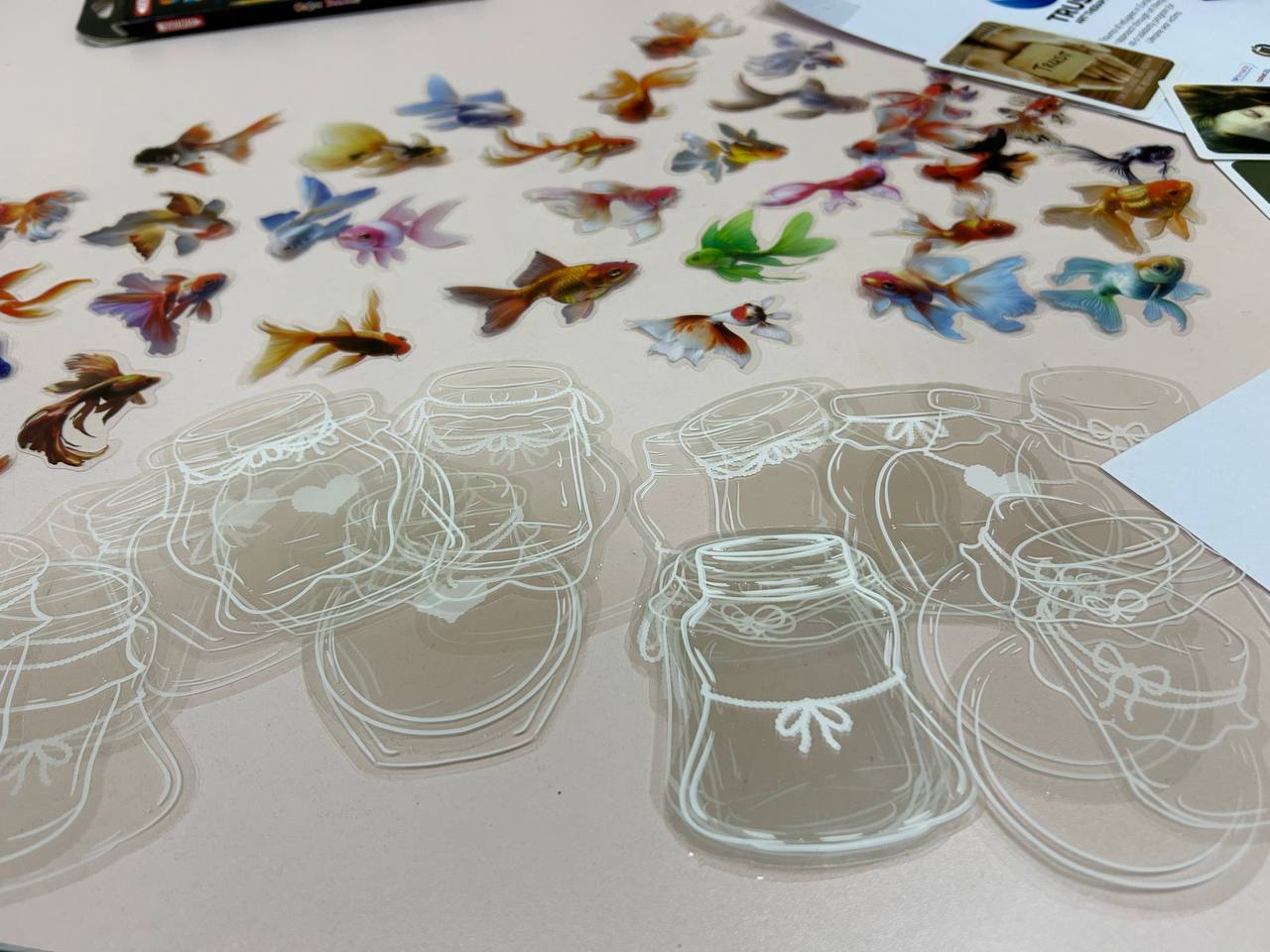
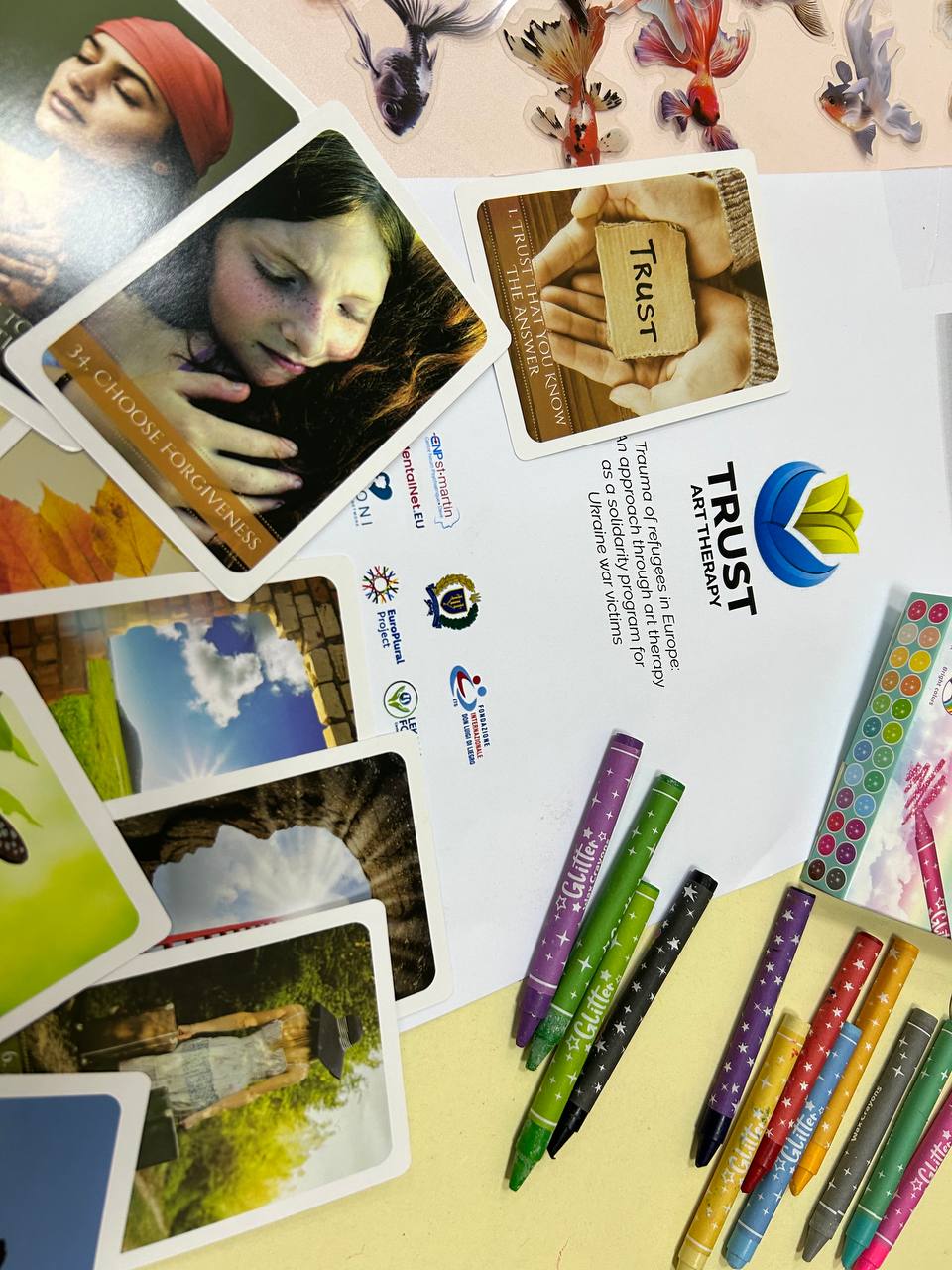
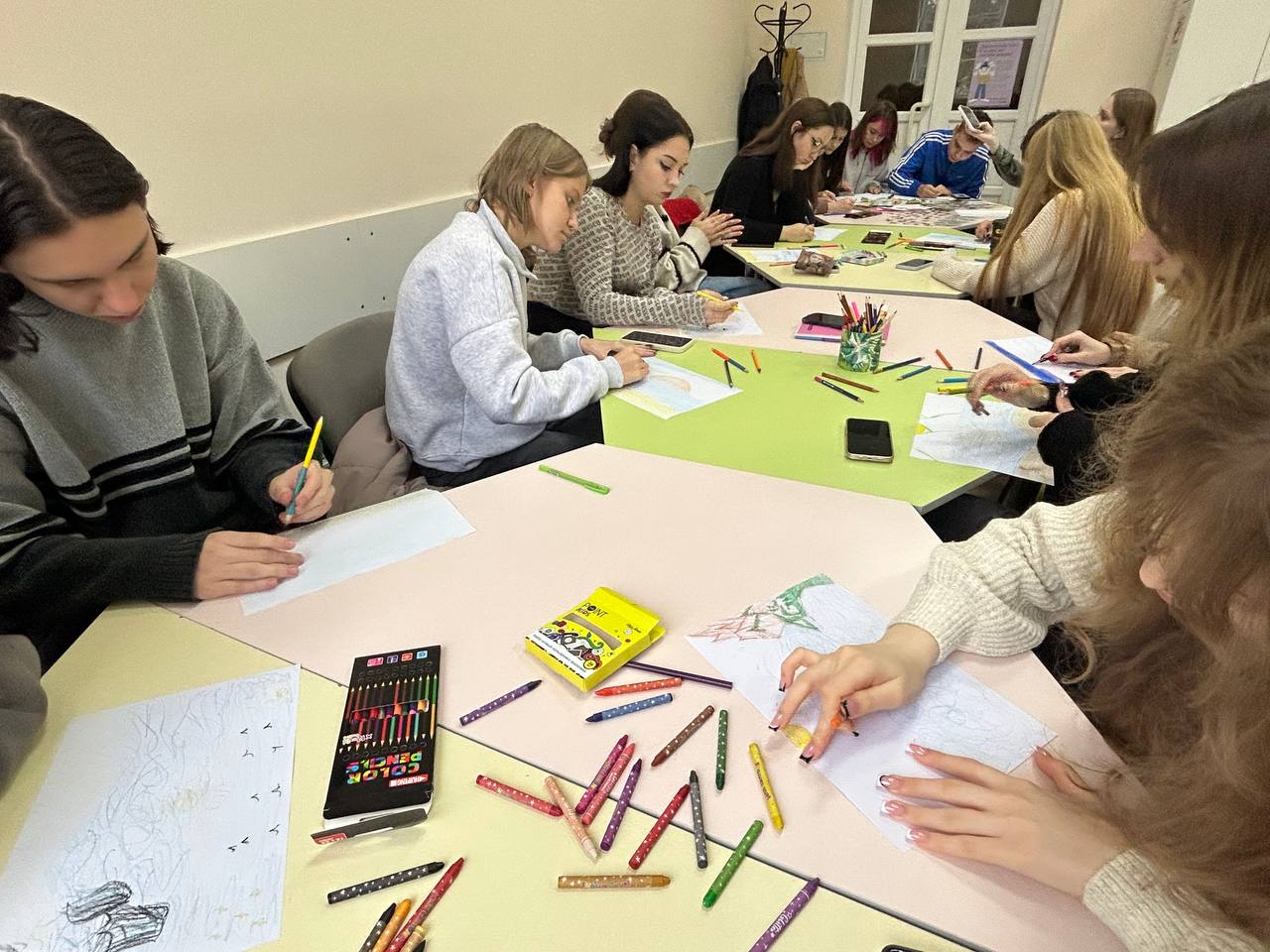
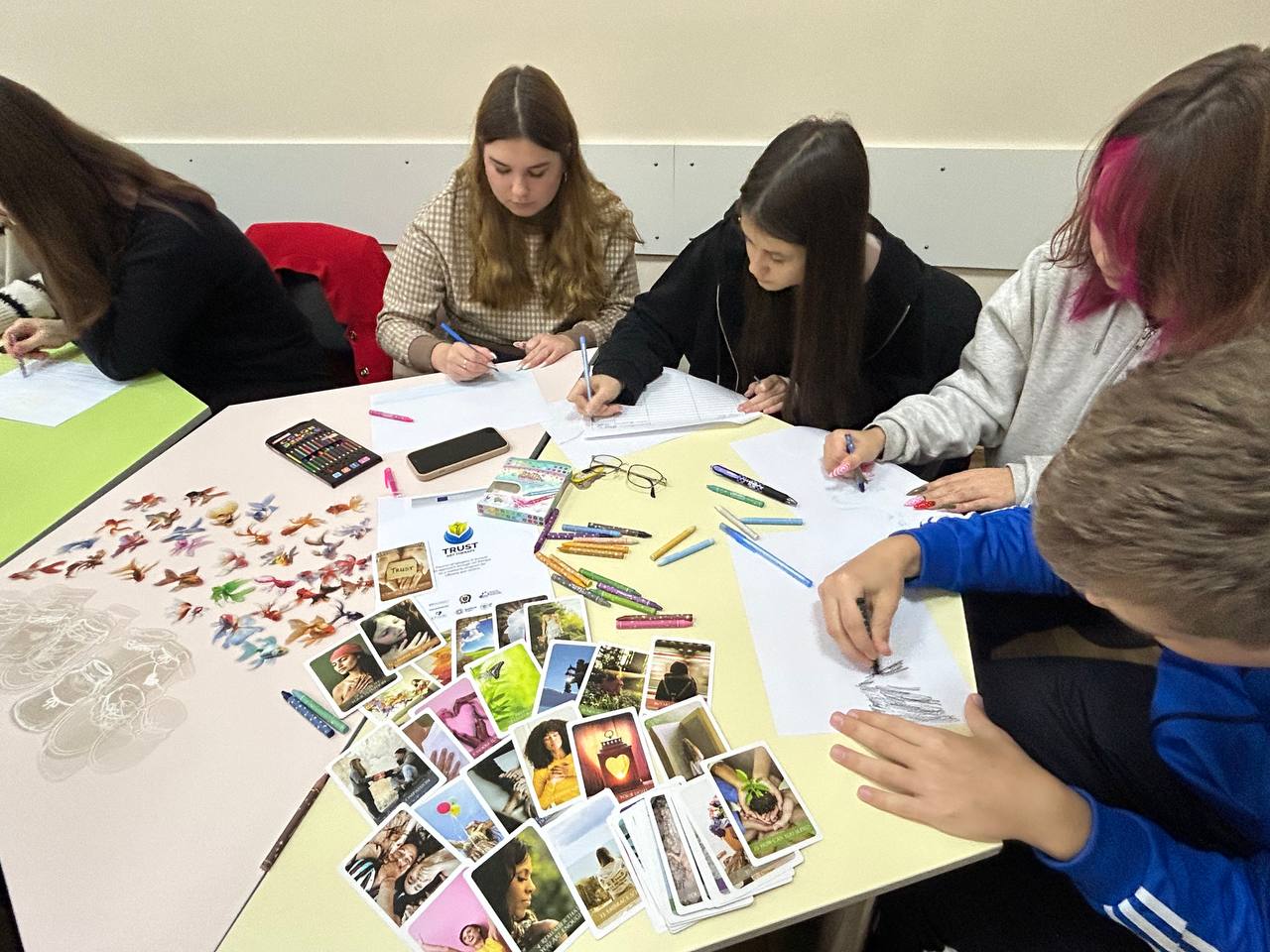
The event was held as part of the international, large-scale EU-funded Erasmus+ KA220-ADU project “TRUST” – Trauma of refugees in Europe: An approach through art therapy as a solidarity program for Ukraine war victims (Grant No. 2024-BE01-KA220-ADU-000257527).
The project title is decoded as follows:
TRUST
T – Trauma
R – Refugees
U – Ukraine
S – Solidarity
T – Therapy
The project is co-funded by the EU and led by the Centre Neuro Psychiatrique St-Martin from Belgium, in partnership with the National University “Yuri Kondratyuk Poltava Polytechnic” (Ukraine), Greek Carers Network EPIONI (Greece), Fondazione Don Luigi Di Liegro (Italy), Lekama Foundation (Luxembourg), EuroPlural Project (Portugal).
We express our sincere gratitude to our partners for their invaluable support, which makes it possible to implement such vitally important initiatives that bring the light of hope and healing to those who need it most.
It is worth noting that Poltava Polytechnic lecturers are eligible to participate in academic mobility and internship programs. Students can study abroad through Erasmus+ credit academic mobility grant programs for a semester or a full academic year at leading universities in Austria, Denmark, Estonia, Finland, Germany, Greenland, Latvia, Lithuania, the Netherlands, Norway, Poland, Portugal, Romania, Slovakia, Spain, and the Czech Republic.
For more detailed information regarding current internship, teaching, and academic mobility programs abroad, please get in touch with the International Relations Department (office 213-C, interoffice@nupp.edu.ua) or the International Relations Coordinator of the National University “Yuri Kondratyuk Poltava Polytechnic” – Ph.D. in Philology, Associate Professor of the Department of Germanic Philology and Translation, Anna Pavelieva (email: kunsite.zi@gmail.com, phone: +38-(095)-91-08-192).
Media Centre of
National University “Yuri Kondratyuk Poltava Polytechnic”



